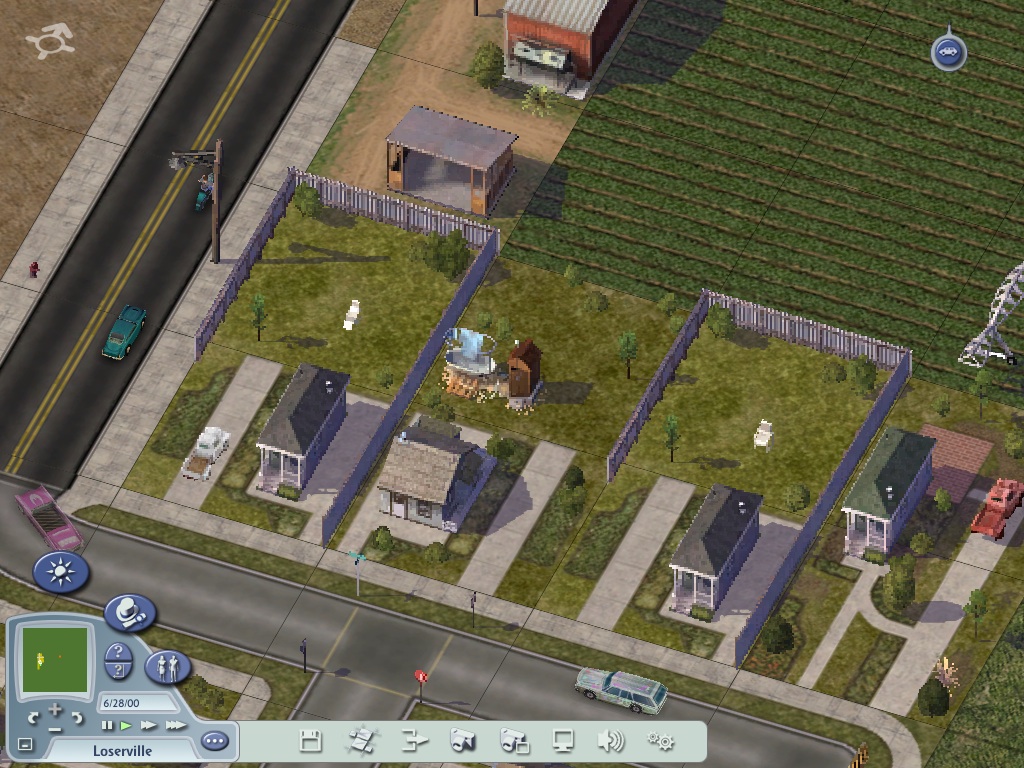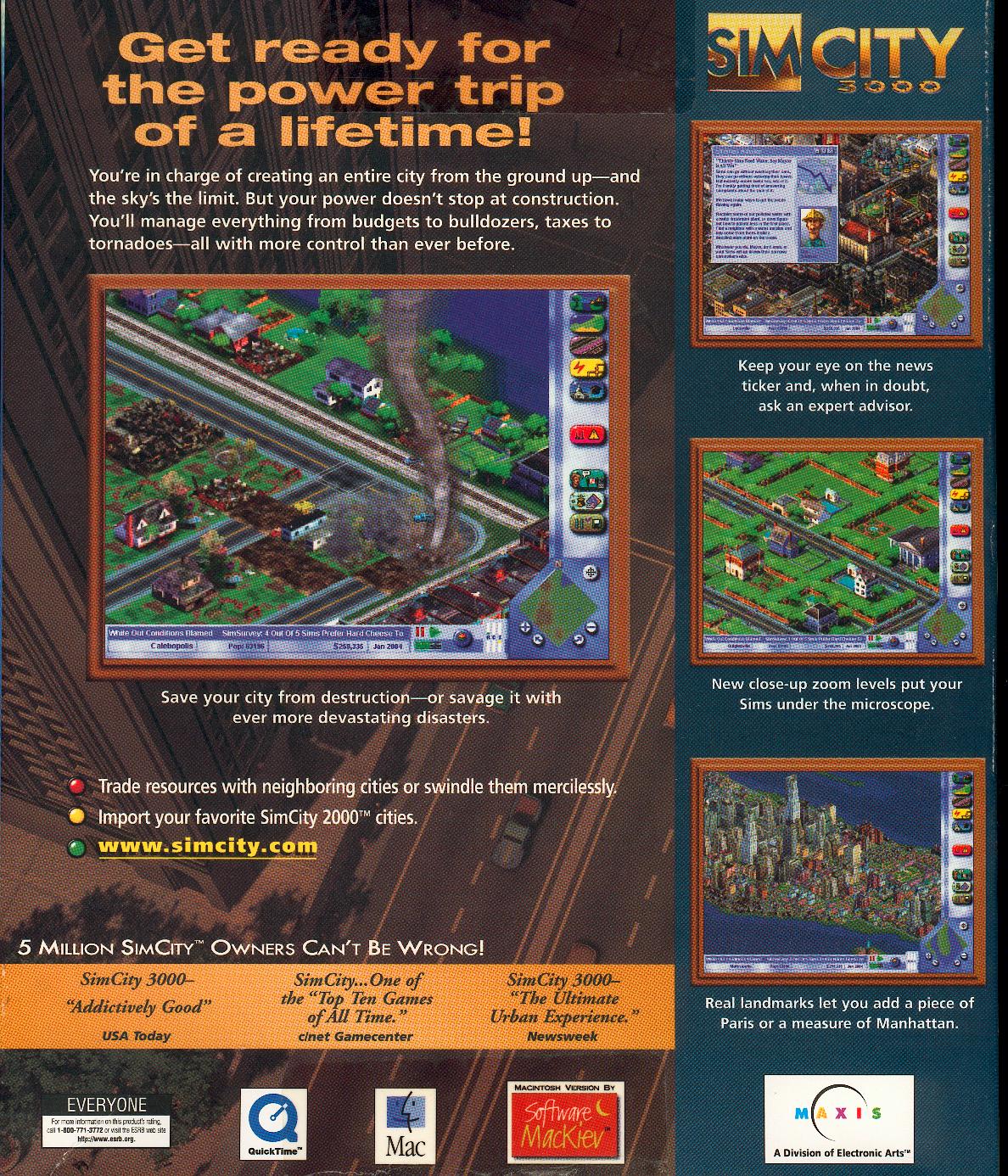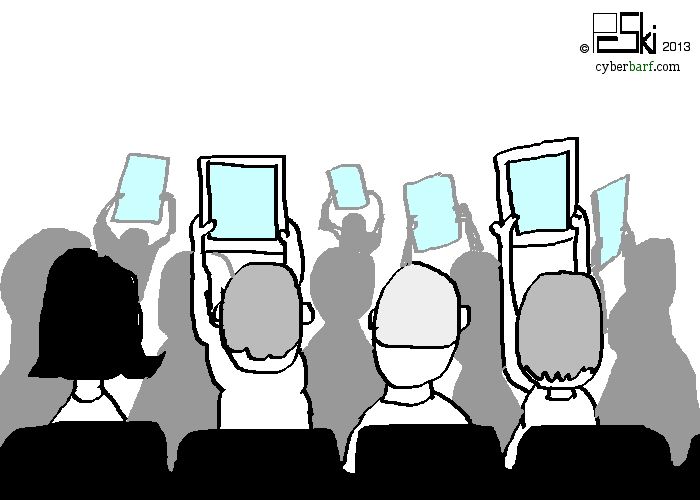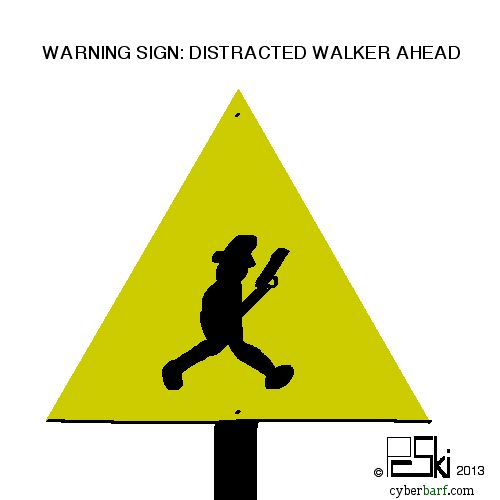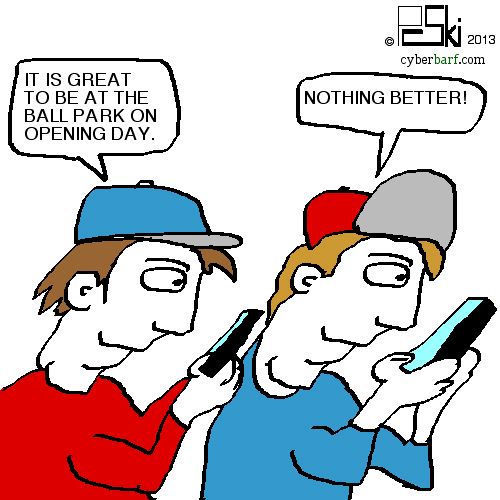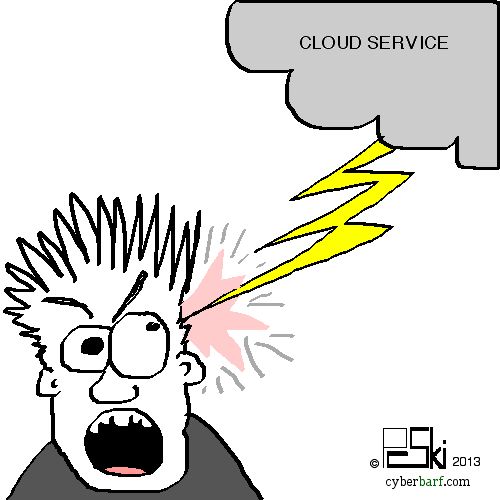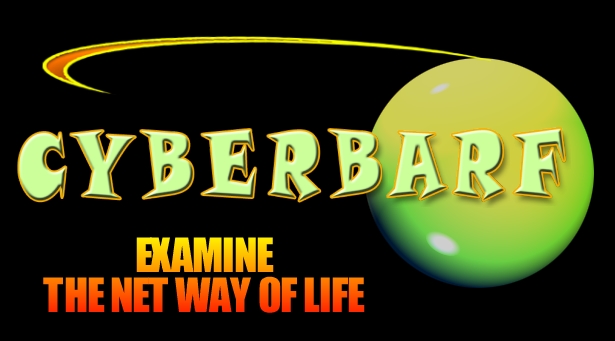|
cyberbarf EXAMINE THE NET WAY OF LIFE
APRIL, 2013 IN THIS ISSUE:
SIMCITY DISASTER REACH FOR THE SKY HACKING AWAY iTOONS BIT O' TAXES WHETHER REPORT NEW REAL NEWS KOMIX! SHOW HACK!
CYBERBARF T-SHIRTS, MUGS & MORE THANK YOU FOR YOUR SUPPORT! THANK YOUR FOR YOUR CONTINUED SUPPORT.
|
|
cyberbarf EXAMINE THE NET WAY OF LIFE For every ending, there is a new beginning: NEW REAL NEWS KOMIX! SHOW HACK! |
|
cyberbarf SIMCITY DISASTER ARTICLE It was the most popular game of its genre. It is now the most despised. SimCity was the giant in the urban simulation game platform. It spawned individual puzzle solving on an epic scale with a god-like power over how the screen results would be shaped move after move. In some respects, it may have led to the growth of urban planning and real life zoning restriction explosions because the game was so realistic, so complex, and so cool.
Screen shot from SimCity 4. Ski archives. You used to buy a copy of the latest edition, go home and load the disc into the DVD slot and begin your personal, in home game play. It used to be a solitary construction game. There were communities of people who shared the gamer ideals and shared their own screens or mods. But when The Sims came along for on-line play, most Simmers stayed in the comfort of their own computers. SimCity was not originally designed for multiplayers. You were to create your own world, your own city, with your own vision. The only disasters would be the in-game danger of fires, tornados or an occasional Godzilla creating chaos. But you could turn off the disaster settings. Many games used to set up their grids, roads, utilities and automatic tax and spend settings and let their computers run all night to see what grand wonder would appear the next morning. If you planned well, you had a skyscraper metropolis from a small town. If you planned poorly, block after block of burned debris fields.
SimCity 3000 game box back cover. The elegant game play with its ease of controls got a serious jolt when the long awaited SimCity sequel hit the market last month. FoxNews reported that Electronic Arts fumbled the launch of the new game when EA's game servers could not handle the massive traffic demands of the game users. Three days later, CNET reported that gamers were still frustrated and steamed by EA's game management system. Gamers continue to find busy servers, long queues, lost connections, sluggish game refresh and the most despised aspect that each gamer needs to have an always on internet connection in order to play the game, even in single player mode. Then, games got into angry comment threads about the game play itself. Gamers soon found out that the actual sim town folk have no permanent homes or jobs. They will walk to the nearest house or work place. This pathfinding and traffic error makes all road and service planning obsolete and irrelevant. In addition, all the police suddenly converge on one crime scene instead of staying in their station territory. Other traffic centric objects like fire trucks and tourists cannot find a path to their destinations. This put past game play construction into chaos. One could not design a functioning city grid because a major flaw in the game code. Further, gamers quickly found that their own cities were suddenly confined to an artificially small size. This angered long time sim gamers who rightfully believe the whole goat of the SimCity franchise is to build the biggest and best city possible. But it is the requirement that all gamers log in to EA's servers in order to play the game which has led to the massive problems with the game play. The crush of user traffic overwhelmed the servers. The system management controls made the complex sim town people movements limited and city designs compact in order to serve the greatest number of logged in gamers. EA said that the game was created to reside on their cloud servers. Gamers had to log into EA in order to play the game. But contract programmers and game modders quickly found that statement was untrue; most of the in-game calculations are not made on the cloud servers. It would be very simple to have the game played “off line” like with past editions. Within days, game modders developed tools to disable the mandatory in-game server checks without effecting the individual gamer's game simulation. This hack will allow players to play the game off-line. In edition, modders are finding additional code and gameplay features to unlock to correct some of the original launch size and pathway issues. The problem with the SimCity launch is that game publishers believe the myth that cloud computing and hosting customer applications is the future. The theory is that if you do not sell a physical copy of a program, there will be no digital piracy. If you have the customers come to your servers, you have a captive audience from which you can gather more valuable marketing data and cross-selling opportunities. But when a customer buys a software program, the customer demands that it works. When a customer buys a software program, he or she should not be required to wear the prison orange jumpsuit in order to play the game in the publisher's cloud prison. The SimCity launch was botched before the first digital download. The decades of goodwill vanished by an unplayable launch, buggy program and management misstatements to customer complaints. Customers spent money in trust that they would get the iconic SimCity game. But EA did not trust its customers. It went overboard in security controls and underestimated the demand on its servers. It failed to properly test the basic game functions in a real time web environment. The only way EA can make good on its franchise is to release an 0ff-line version of SimCity. That is what the vast majority of game fans wanted all along. cyberbarf REACH FOR THE SKY NOT SO HANDY CAM Call it Pad Crowding, Tab Blocking or just Plain Rude.
The popularity of the tablet computer has created a weird parental herd phenomena. At school events, more and more parents raise their tablets above their heads to record their child's performance. Instead of using handy videocamcorders or a less intrusive smart phone, parents are raising seat billboards to those people sitting behind them. Common courtesy has gone by the wayside as common sense. As a general rule, the more specific the technology the device the better suited it to the task at hand. If you are to record a graduation or a school play, a video camera has the composite features to do the job well. If you want to take holiday stills, then even a pocket digital camera with red eye control will do the job well. If you want to capture a spontaneous moment, then the lesser megapixel smartphone camera will capture the scene. So why is the tablet the growing choice as a catch all family archive tool? It could be a mere status symbol. This is the latest technology so first adopters will use it (even imprudently). But it is an awkward dance of highway robbery victims (“reach for the sky” to get imagines centered in the large screen). It could be another sign of addiction. People have become so attached to their smartphones. They hold them closer to their vest than their own children. The tablet market exploded and fed this addictive mobile behavior by giving people a smartphone on steroids. And what consumer with disposable income not believe bigger is better? But it is another addition to a growing list of technology pet peeves like answering ringing cellphones during a movie at a theater. People have locked their eyeballs on the computer screens so much they are becoming blind to the people around them. In a different age, they would be called foolish but with so many people doing it they have overcome the fool label to become mainstream.
cyberbarf HACKING AWAY INSIDE STORY Webcomics have a way of waxing and waning in popularity. The Internet consciousness is a scattered mind of misfiring neurons and mental attic memory clutter. Anime representations like Ghost in the Shell make the world wide web seem organized and simple to navigate and find items of interest. But each item on the web, whether it be a page, a graphic or a webcomic is a mere drop in the ocean of information. So people put their content onto the web more for personal gratification than fame or fortune. In today's fast paced, instant response society, people do need the freedom and creative outlet that the Internet provides individuals. All that matters is having enough free time in one's busy schedule. At the time the G4 Network decided to kill off its two remaining popular hold over TechTV programs, X-Play and Attack of the Show, Ski was pondering whether to create another tech culture cartoon after the series called cyberbarf and Murmur Lost Souls. So Ski decided to jump into an ambitious new project which turned into Show Hack! He decided to create a fictional cable television show that had a focus on cyberculture but in reality was a satire on most low budget cable programs. He decided that in order to get the depth of field imaginary, he would create the new webcomic in 3D computer graphics. He had done this before on a limited basis with his two earlier series, Rapter Agent and Dr. Philistine. But in order to set up a viable premise for the web series, Ski had to re-create an enhanced rock band garage set with more characters and funky props.
It took several weeks of planning with pen on paper to get a basic outline for the series. It took more than 24 hours of time to create the basic set in 3D program. Then, a series of camera angles had to be created to give various stationary backgrounds for future character placement. At the same time, a note book for story lines, gags and characters was filled with ideas. Once the planning stage reached critical mass, Ski went to work on the actual character designs. Each main character took more than a day to model. Once those models were completed, it took long hours to make realistic composites with the backgrounds. It soon became apparent that it did not have to be perfect since it was a fictional representation with enough diversity to infer camera movements of a live television broadcast. Then, the real hard part: creation of the first episode. Ski did not know how many panels each webcomic episode would have since he only had a general idea of television like segments that would rotate from episode to episode. He did know that one page would be reserved for the opening with the main co-hosts, and the last page for a typical show sign-off. He began with the standard front stage main camera angle and posed his two main characters, Calvin and Olive. After rendering the first screen shot, Ski used the key frame concept to move the models and reshoot each subsequent shot. It was quickly realized that in order to pace the panels more standardized graphics to introduce segment switches had to be created in a different graphics program. The creation of these bumps also took valuable time. With a self imposed deadline of January 1, 2013 for launch, Ski abandoned a strict script for the pilot episode and let his mind organically allow the characters to come to life. It led to a nature show rhythm and development of character personality traits. Once the dialogue and staged shots were completed, it took another 24 hours of shifting between programs, image files to compose the final comic pages. A late edition to the packaging of the series was adding message lines to represent interactive, or real time “viewer” texts. The reason was two-fold: one, to create the feel that the program was “live” television, which in itself is a rarity today, and two to add an element of Internet snark to the proceedings. The first episode took several months to complete. But even after the basic ground work was completed, it still takes more than 10 hours of detail work to create each subsequent episode. If there are new characters, locations or props then the creative time increases dramatically. But the series has quickly evolved into a complex interaction between diverse characters who realize that they are winging it on a quirky little show with only a vague comprehension of who is watching their broadcasts. Show Hack! has been the most time consuming project in cyberbarf.com history. But in many respects, it has been the most complex and rewarding webcomic adventure to date.
|
|
THE PINDERMEDIA STORE IS FULL OF FUN T-SHIRTS CLOTHES, HATS AND OTHER ITEMS. CHECK OUT THE STORE FOR ITEMS
SUPPORT cyberbarf VISIT THE CYBERBARF STORE! Prices may vary depending on sales, allotments, inventory. |
|
cyberbarf.com EXAMINE THE NET WAY OF LIFE iToons
BIT O' TAXES FORFEITURE Many Americans do not know the ramifications of the European Union's fiscal arm twisting of Cyprus. But EU fiat, Cyprus closed its banks in order to stop depositors from withdrawing their hard earned savings. The reason was simple: the government wanted to take anywhere from 10 to 40 percent of the savings to secure another billion dollar bailout of government debts. Cyprus did not call it a tax, because there was no legislation attached to a public purpose. It was more like a civil forfeiture, which is different than a tax. A forfeiture means that a citizen has done something illegal or wrong so the police can immediately seize property attached to that illegal activity. Apparently, saving accounts are illegal in Cyprus. This whole destruction of the confidence of the Cypriot banking system is based upon the insanity that bailout after bailout (more debt paying off old debt) is a viable solution to the massive public debts that are so huge they can never be paid back in full. Cyprus owes more than its gross domestic product to international bankers. International bankers who are demanding that Cypriot citizens take the fall for the losses sustained by their elected officials. Other international markets, especially in Asia, are spooked by these developments. Asians save more money than most other people on the planet. But if the international bankers get Cyprus to raid its own citizens' bank accounts, then everyone on the planet is at risk. For example, Japan's government debt is almost two times its gross domestic product (GDP). Japan has never recovered from the earthquake and tsunami from two years ago. Its economy has stagnated and skilled workers are leaving the country to find work in China and India. At some point, the government will have to stop printing money in order to pay for its programs and debt. The United States is in the same boat. The Federal Reserve is stealthily adding new money into the banker's hands by the billions each month. The federal deficit is more than the U.S. GDP. The deficit is growing by more than $1.2 trillion per year. At some point, hyperinflation will kick in and the government will have to stop printing money and take back money in circulation from the taxpayers, by hook or crook. How would you feel if next week you woke up to find 40 percent of your bank accounts gone? The backlash against such bank account forfeiture is growing. Cyprus officials have floated a new trial balloon: the amounts that will be taken from high value bank accounts will be off-set by shares in that depositors bank. But this is another illusion. The government is forcing people to take stock shares in a failed bank. And the banks will fail because after the government takes forty percent or more of the accounts, the citizens will attempt to withdraw the rest of their savings under the real fear that they will lose it all. Banks can only operate if there are long term deposits. The whole EU bailout blows up that basic banking premise. Which gets us back to Cyprus. Living conditions have been reported as miserable for the last week. Merchants refused to accept credit or debit cards from customers. ATMs did not work. All transactions had to be in cash. Modern society does not deal in an all cash based economy. People ran out of cash to buy the necessities. Suddenly, the entire nation was put back into the dark ages, in a war-torn ration culture of confusion and bitterness. There are two alternatives for people caught in this banking trap. People could barter goods and services between themselves without using currency as the means of exchange. This would throw the world back to the pre-Bronze Age. The other alternative is to use virtual currency, like Bitcoin, as a means of payment. Virtual currency has its own issues. First, people do not trust the mechanism for getting real money at a real exchange rate out of that closed system. Second, it is not widely accepted by the general population. Third, it is not widely accepted by even the digitally inclined because it does not have the track record of a paypal system. Fourth, people are wary of being burned by identity thieves or the ability to seek recourse if a transaction/payment goes wrong. It has been reported that there are more than one billion bitcoins that lurk on the web. Since bitcoins are not issued by a sovereign nation or a bank that guarantees some value stability (full faith and credit against its assets or taxing power). Bitcoins are computer code units that bought and sold by the people whose servers who host the currency's program code. It is a decentralized system of unseen trust. Currently, each bitcoin sells for $90 US. Then people use the bitcoins to purchase goods or services anonymously online. Police have found that this has led to an untraceable market for drug dealing and money laundering since the medium of exchange can not be traced through existing banking channels. People always thought that there were two constants in life: death and taxes. We may soon be adding a third component: forfeitures. |
|
cyberbarf THE WHETHER REPORT |
cyberbarf STATUS |
| Question: Whether Apple will sell its own universal game controller in 2013? |
* Educated Guess * Possible * Probable * Beyond a Reasonable Doubt * Doubtful * Vapor Dream |
| Question: Whether Blackberry's unexpected last quarter profit is a sign that the smart phone pioneer is on its way back to the top? |
* Educated Guess * Possible * Probable * Beyond a Reasonable Doubt * Doubtful * Vapor Dream |
| Question: Whether the Six Strikes ISP cut-off for illicit downloaders will cut down on illegal digital piracy? |
* Educated Guess * Possible * Probable * Beyond a Reasonable Doubt * Doubtful * Vapor Dream |
|
cyberbarf EXAMINE THE NET WAY OF LIFE |
The system has not failed - - - but some of us have failed the system. Edmund Muskie |
|
BACK IN BLACK WITH THIS CLASSIC CYBERBARF T-SHIRT!
FEATURING: THE REAL NEWS IMPACT EDITORIAL CARTOONS WRIGLEYVILLE WAR POLITICS ENDORPHIN RUSH THE DARK ABYSS RANDOM ELECTRONS SPECIALS
FEATURING: THE REAL NEWS ARCHIVES CARTOONS MADAME'S TEA HOUSE THE BAR EXPLORE THE CITY SCAPE UNDER CONSTRUCTION SURPRISES ESTORE SPECIALS |
|
cyberbarf
THE STEAM PUNK SPECIAL EDITION featured new Music from Chicago Ski & the (audio) Real News: (mp3/4:14 length)
EXAMINING THE NET WAY OF LIFE cyberbarf™ distributed by pindermedia.com, inc. |
DISCUSS THE CHARACTERS AND BIG PREMISE OF
LOST
at
LOSTHEORY
cyberbarf
Distribution ©2001-2013 pindermedia.com, inc.
All Ski graphics, designs, cartoons and images copyrighted.
All Rights Reserved Worldwide.














